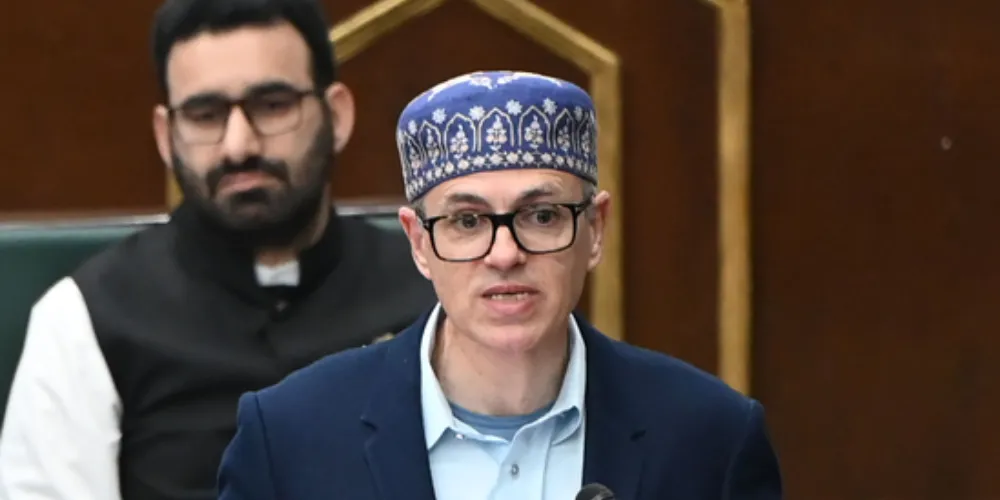Introduction
Former Jammu and Kashmir Chief Minister Omar Abdullah recently emphasized that Jammu and Kashmir (J&K) stands as a powerful example of India’s rejection of the two-nation theory. His remarks highlight the region’s historical and political significance in shaping India’s secular identity. According to Omar, despite the challenges faced by J&K over the decades, the people have consistently chosen unity over division, reinforcing India’s foundational values of inclusivity and pluralism.
J&K’s Historical Rejection of the Two-Nation Theory
The two-nation theory, which led to the partition of India in 1947, argued that Hindus and Muslims were distinct nations requiring separate countries. However, J&K’s accession to India under Maharaja Hari Singh and the leadership of Sheikh Abdullah demonstrated that the region did not subscribe to this ideology. Instead, it opted to remain a part of a secular and diverse India rather than aligning with religious divisions.
Omar Abdullah reiterated that the people of J&K have consistently rejected sectarian narratives. Despite political and security challenges, the region has upheld its unique cultural identity, which blends Hindu, Muslim, and Buddhist traditions. He stated that this rejection of religious separatism strengthens India’s unity and challenges the notion that religion alone should define a nation’s boundaries.

Challenges and Struggles in Maintaining Unity
While J&K symbolizes India’s commitment to secularism, the region has faced significant turmoil over the years. Insurgency, political instability, and external influences have tested its resilience. The abrogation of Article 370 in 2019 further reshaped its relationship with the central government, leading to a mix of support and opposition from various sections of society.
Omar Abdullah has consistently argued that the will of the people should be respected in determining the region’s future. He believes that J&K’s identity should not be altered to fit any singular political narrative but should instead be preserved as a testament to India’s pluralism. Despite differences in opinion, he maintains that the people of J&K have never endorsed the idea of separation based on religion, reinforcing its stance against the two-nation theory.
J&K’s Role in Strengthening India’s Secular Fabric
The integration of J&K into India represents more than just a political decision—it serves as a powerful statement of national unity. Omar Abdullah pointed out that the region’s rich cultural and religious diversity is a microcosm of India’s broader ethos. He emphasized the need to protect this legacy by ensuring democratic processes, safeguarding regional autonomy, and fostering economic development.
Furthermore, he urged the central government to focus on building trust among the people of J&K. Economic opportunities, dialogue, and political engagement are crucial in ensuring that the region continues to thrive within the framework of a united India. He believes that J&K’s strength lies in its ability to resist divisive ideologies and uphold the principles of inclusivity.
Conclusion
Omar Abdullah’s statement underscores J&K’s importance in India’s historical and political landscape. As a region that has continually defied the two-nation theory, its journey reflects the broader vision of a united and diverse India. While challenges remain, J&K’s resilience and commitment to secularism serve as a reminder that national unity transcends religious and ideological differences. The path forward lies in strengthening democratic values and ensuring that the voices of the people continue to shape its future.



